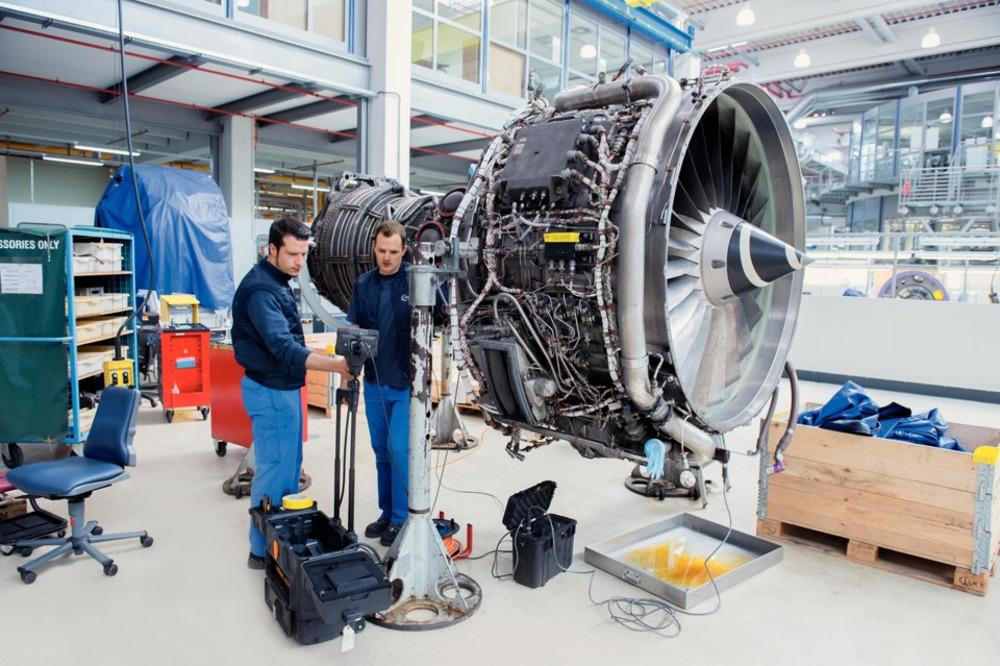
IAE's V2500 is the second most popular narowbody engine on the market and drives the company's overall share in the segment. Aviation Week estimates IAE holds a 10% share.
The commercial engine repair segment could be the aftermarket segment feeling the most adverse effects of the novel coronavirus crisis with providers large and small having their bottom lines hit by high volumes of deferred maintenance work.
Germany’s MTU Maintenance, one of the world’s largest engine MRO specialists, is one of these companies. However, the aftermarket segment went some way to offset revenue falls at its OEM business MTU Aero Engines by only seeing a short drop off for the first six months of the year.
MTU Maintenance posted revenues of €1.2 billion ($1.4 billion) for the six months ending June 30, 2020. The main revenue driver was the V2500 for the classic Airbus A320 family, followed by the PW1000G-JM for the A320neo, where MTU registered an increase in shop visits in connection with the retrofit program. “This work could offset the decline in revenue in the core business,” Reiner Winkler, CEO of MTU Aero Engines says. Revenues in its commercial engines business fell from €773 million to €630.6 million during H1.
Overall, its parent company MTU Aero Engines saw revenue decrease from €2.2 billion in H1 2019 to around €2 billion for the same period this year. Operating profit was also impacted, with €224.2 million generated, some way short of the €365.2 million posted in the first half of last year.
MTU ended the period with the same number of staff in place at the end of 2019, numbering 10,661 employees worldwide. However, the company announced earlier in the summer that it would undertake a downsizing of its workforce through measures such as increasing the use of partial retirement, early retirement and other arrangements for staff.
“Regrettably, the present business situation forces us to reduce our personnel capacity by 10-15% by the end of 2021,” Winkler says. “We will be doing that as circumspectly as possible to ensure that after the crisis we still have as many of our highly qualified staff on board as possible.”
Other workforce initiatives, including recruitment freezes or waivers to fill vacant positions, as well as a reduction in working hours implemented in May, will also be used to reach the targeted cuts.





